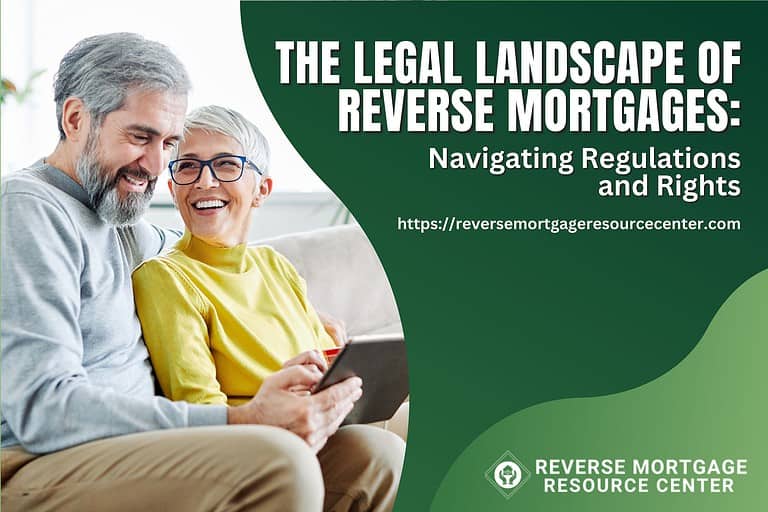Preserve Your Idaho Homeownership with a Reverse Mortgage
Idaho’s picturesque landscapes, friendly communities, and vibrant culture make it a desirable place to call home. However, homeownership can come with financial challenges, especially for seniors looking to maintain their quality of life during retirement. Fortunately, there’s a valuable financial tool that can help Idaho homeowners unlock the equity in their homes and preserve their beloved properties – the reverse mortgage. In this article, we will delve into reverse mortgages, explaining what they are, how they work, and why they can be a smart choice for Idaho residents who want to ensure they can enjoy the Gem State to the fullest during their golden years.
Understanding Reverse Mortgages
Before we discuss how reverse mortgages can help preserve homeownership in Idaho, let’s establish a clear understanding of what they are and how they work.
What is a Reverse Mortgage?
A reverse mortgage, also known as a Home Equity Conversion Mortgage (HECM), is a unique home loan designed specifically for homeowners aged 62 and older. Unlike traditional mortgages, where homeowners make monthly payments to the lender, a reverse mortgage allows homeowners to receive disbursements from the lender, effectively turning their home equity into cash.
How Do Reverse Mortgages Work?
The mechanics of a reverse mortgage are straightforward. Here’s a step-by-step breakdown of the process:
- Eligibility: To qualify for a reverse mortgage, you must be at least 62 years old and own your home outright or have a significant amount of equity.
- Loan Application: You apply for a reverse mortgage through an approved lender. The lender evaluates your age, home value, and current interest rates to determine the loan amount you’re eligible for.
- Loan Disbursement: Once approved, you can choose how to receive the loan proceeds – as a lump sum, a line of credit, fixed monthly payments, or a combination of these options.
- No Monthly Payments: One of the most significant advantages of a reverse mortgage is that you don’t need to pay monthly on the loan. The loan balance accumulates over time.
- Repayment: The loan must be repaid when the last remaining borrower permanently leaves the home, typically through the sale of the property. If the loan balance exceeds the home’s value, the Federal Housing Administration (FHA) insurance covers the difference.
Safeguards and Protections
Reverse mortgages are regulated by the Federal Housing Administration (FHA) to protect borrowers and ensure they can maintain homeownership throughout their lives. Some key safeguards include:
- Independent HUD-approved counseling for borrowers.
- Non-recourse feature: Borrowers, their heirs, and estates are not liable for any loan balance exceeding the home’s value at the time of repayment.
- FHA insurance to guarantee loan disbursements.
Preserving Idaho Homeownership with a Reverse Mortgage
Now that we understand the basics of reverse mortgages, let’s explore how they can help Idaho homeowners preserve their cherished properties.
Supplementing Retirement Income
Idaho’s serene landscapes and outdoor activities are a dream for retirees. Still, making ends meet during retirement can be a challenge. A reverse mortgage can provide a much-needed financial cushion, allowing seniors to enhance their quality of life, cover healthcare expenses, or even embark on new adventures. With the option to receive the loan proceeds in various ways, homeowners can tailor their reverse mortgage to meet their specific financial needs.
Keeping Up with Home Maintenance
Owning a home requires ongoing maintenance and repairs, which can burden seniors on fixed incomes. A reverse mortgage can help seniors stay on top of home maintenance, ensuring their properties remain in good condition. This not only preserves the value of their homes but also enhances their safety and comfort as they age.
Paying Off Existing Mortgages
Many Idaho homeowners may still have a traditional mortgage when they retire. The monthly mortgage payments can strain their finances, making it challenging to enjoy their retirement years to the fullest. By paying off an existing mortgage with a reverse mortgage, homeowners can eliminate this financial burden and free up their monthly budget for other expenses.
Funding Long-Term Care
As homeowners age, the need for long-term care can become a reality. The costs associated with nursing homes or in-home care can be excessive. A reverse mortgage can provide the necessary funds to cover these expenses, allowing seniors to receive the care they need without having to sell their homes or deplete their savings.
Delaying Social Security Benefits
Delaying receiving Social Security benefits can result in higher monthly payments for seniors. A reverse mortgage can serve as a bridge, enabling homeowners to delay taking Social Security until they can maximize their benefits. This strategy can significantly increase their overall retirement income.
Enhancing Quality of Life
Idaho offers a wealth of outdoor recreational opportunities, from hiking in the Sawtooth National Recreation Area to enjoying the beautiful landscapes of Sun Valley. With a reverse mortgage, seniors can access the financial resources they need to explore these activities, travel, or invest in hobbies and interests they are passionate about.
Addressing Common Concerns
Despite the many advantages of reverse mortgages, some misconceptions and concerns persist. Let’s address these issues to ensure you make an informed decision.
Losing Ownership of Your Home
A common misconception is that you give up home ownership with a reverse mortgage. This is not the case. As long as you live in the home as your primary residence, maintain it, and pay property taxes and insurance, you retain ownership.
Leaving Debt to Heirs
Many worry that their heirs will be burdened with debt upon their passing. Reverse mortgages are non-recourse loans, meaning the debt is generally repaid by selling the property. If the home’s value is insufficient to cover the loan balance, the FHA insurance covers the difference, and heirs are not responsible for any shortfall.
Impact on Government Benefits
Receiving a reverse mortgage generally does not affect Social Security or Medicare benefits. However, means-tested programs like Medicaid may be affected. It’s advisable to consult with a financial advisor to understand how a reverse mortgage may impact your specific situation.
Interest Accumulation
Reverse mortgages do accumulate interest over time. However, the interest is not paid out of pocket but is added to the loan balance. This means the loan balance will increase over time, but it’s only repaid when the remaining borrower permanently leaves the home.
Choosing the Right Reverse Mortgage
To ensure the best outcome for your Idaho homeownership, it’s essential to select the right type of reverse mortgage. The most common option is the Home Equity Conversion Mortgage (HECM), insured by the FHA. However, there are also proprietary reverse mortgages offered by private lenders. Here are some factors to consider:
- Interest Rate: Interest rates can vary, so it’s crucial to compare options and choose a loan with the best terms for your situation.
- Loan Amount: The amount you’re eligible to borrow can differ among lenders. Shop around for the best deal.
- Loan Disbursement Options: Different lenders may offer various ways to receive loan proceeds. Consider which option best suits your needs.
- Reputation and Trustworthiness: Choose a reputable lender with a strong track record in reverse mortgages to ensure a smooth and trustworthy process.
- Counseling: HUD-approved counseling is mandatory for HECM loans. Ensure you receive unbiased information and guidance before proceeding.
REVERSE MORTGAGE RESOURCE CENTER ~LIVE LIFE ON YOUR TERMS~
Our Lending Team has been serving our clients since 2004. We are passionate about serving our clients with integrity to help them achieve their financial goals.







